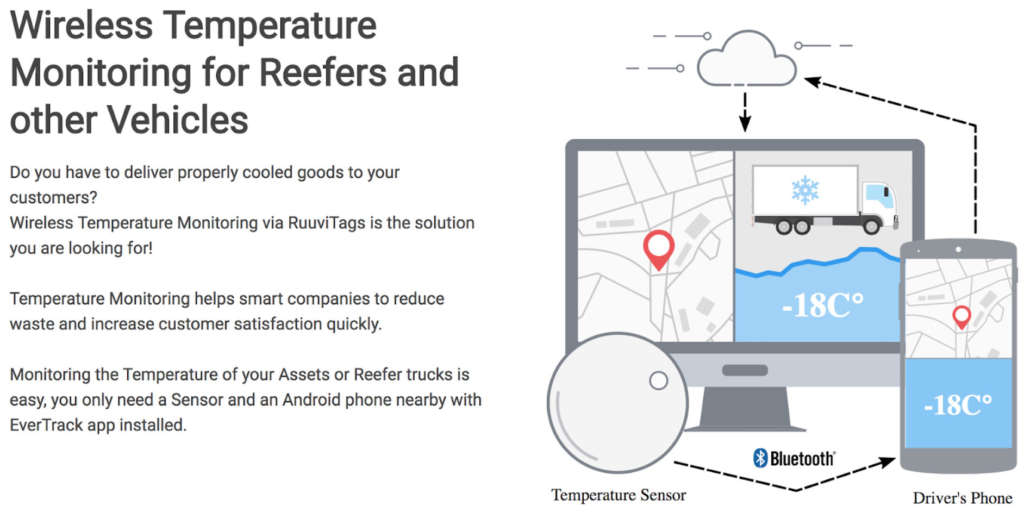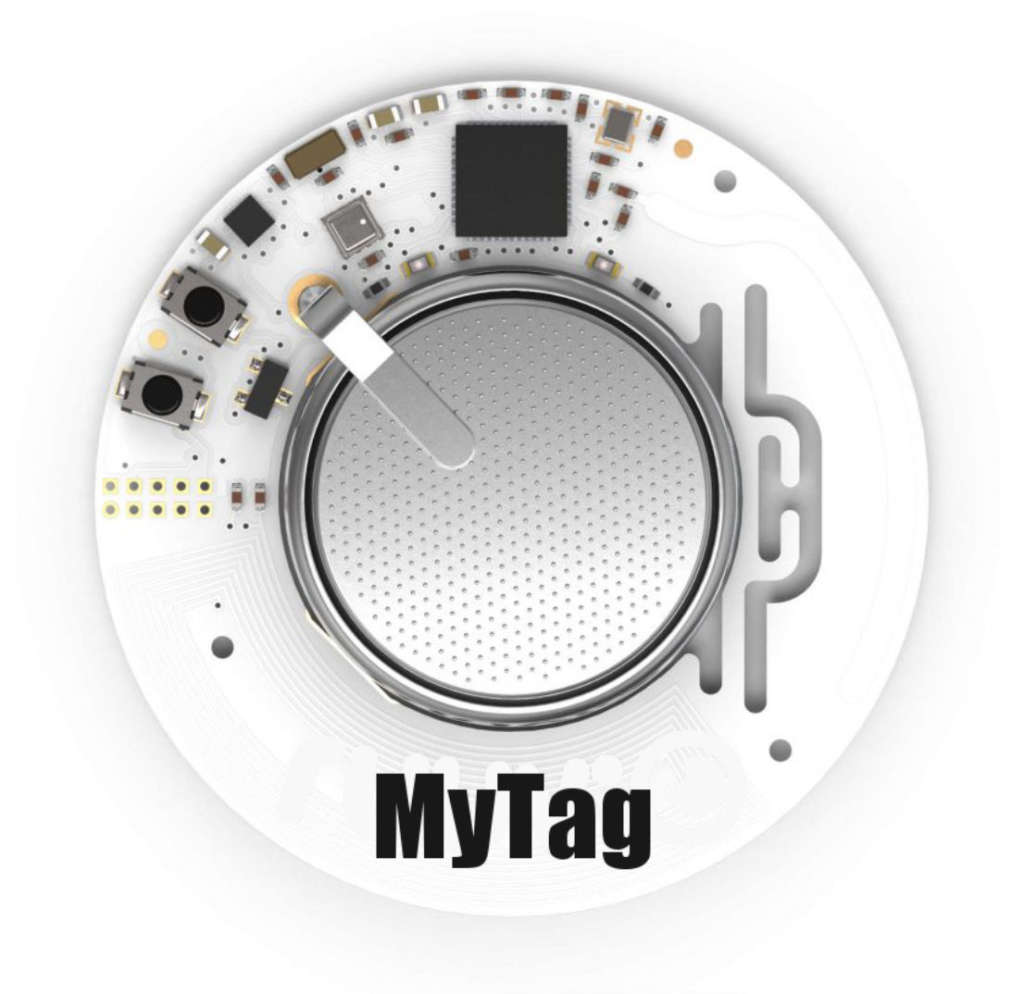This document describes how open-source licensed Ruuvi products can be used for different purposes.
RuuviTag is a multi-use Bluetooth® sensor node designed and manufactured by Ruuvi Innovations Ltd (Oy).
You Can...
- Use RuuviTags for a multitude of personal purposes.
- Use RuuviTags in various commercial applications (see examples 2 and 3 below).
- Use RuuviTags with CR2430, CR2450 and CR2477 sized batteries.
- Custom label RuuviTags (see example 2 below).
- Resell original RuuviTags in your own brand e-commerce stores and brick&mortar stores,
- Use RuuviTags as part of a commercial service.
- Inspect, use and modify electronics design files and software sources by following their licenses.
You Can’t...
- Completely rebrand original RuuviTags by removing their certification stickers.
- Use or alter Ruuvi’s marketing materials for your own use, without our written permission (see example 4 below).
- Use the name “RuuviTag” or “Ruuvi” in relation to products not produced by Ruuvi Innovations.
- Open "Ruuvi" brand local stores, websites, e-commerce shops, or any other business activity under "Ruuvi" brand.
If You...
- Make modifications to the firmware application and/or bootloader, all the certifications will remain valid.
- Use others than Nordic Semiconductor s132 v3.1.0a Bluetooth protocol stack or a totally different protocol, the Bluetooth declaration will not remain valid.
- Modify RuuviTag's firmware application, Ruuvi's Bluetooth company identifier can be used as long as the hardware is manufactured by Ruuvi.
- Make modifications to the electronics and produce units to sell or use in commercial applications, all the certifications will have to be obtained again and a new Bluetooth declaration ID will have to be purchased. The hardware license will also need to be followed.
- Use or resell original RuuviTags, the certification stickers have to remain on the bottom of the device.
- Use RuuviTags as part of a commercial service, Ruuvi has to be clearly mentioned in the marketing material (e.g. website) with a hyperlink to https://ruuvi.com. If you'd prefer not to mention Ruuvi, please contact us directly.
- Use RuuviTags in your business (e.g. measure temperature in your office building) and Ruuvi products are not used as part of a commercial service your company sells, a mention is not required.
Important note
The certifications and the Bluetooth declaration are valid only when the product is manufactured by Ruuvi Innovations Ltd (Oy).
To keep the certifications valid under all circumstances, the certification sticker shown below must remain intact on the bottom of the device and should not be permanently covered.
Hardware License
RuuviTag’s electronics design files are licensed using a free cultural approved license Creative Commons Attribution-ShareAlike 4.0 International (CC BY-SA 4.0).
You are free to
- Share — copy and redistribute the material in any medium or format.
- Adapt — remix, transform, and build upon the material for any purpose, even commercially.
Under the following terms
- Attribution — You must give appropriate credit, provide a link to the license, and indicate if changes were made. You may do so in any reasonable manner, but not in any way that suggests the licensor endorses you or your use.
- ShareAlike — If you remix, transform, or build upon the material, you must distribute your contributions under the same license as the original.
Source: Creative Commons.
Software Licenses
Major parts of RuuviTag’s firmware and mobile applications are licensed with BSD-3. For more accurate information, visit our GitHub.
With the BSD-3 clause, you will not be required to divulge your source code, nor the source code of the open source libraries. It’s a very lenient license and as such does not require you to give permission to your users to re-distribute the binaries.
You are, however, expected to display any copyright statements from the BSD libraries, and you must also display the BSD license text where it makes sense to do so. For example, if your software is an application, you may include this information in an “About this Software” section. Alternatively, software documentation is another good place where this text may be added.
Example 1
Bosch Connected Industry is using RuuviTags as part of their logistics 4.0 solution Nexeed Track and Trace. They have publicly mentioned RuuviTag on their website. The project is also covered on the Ruuvi Node press release by Nordic Semiconductor.
Example 2
Kaltio Technologies is using RuuviTags as part of their tracking product - Smart Tracker. The devices are purchased from Ruuvi, but they have custom color enclosures and the customer’s own sticker on top. The original Ruuvi certification sticker, however, remains on the bottom of the device. On their marketing material, they mention RuuviTag.

Example 3
CorvusGPS is using RuuviTags in their original form for their own tracking application. They advise their users to purchase the sensor units directly from Ruuvi.

Example 4
A hypothetical company purchases original RuuviTags from Ruuvi Innovations. They download Ruuvi’s online marketing materials in order to change RuuviTag’s name to something different.
This cannot be done, because using or altering Ruuvi’s marketing materials without a written permission from Ruuvi Innovations is prohibited.
